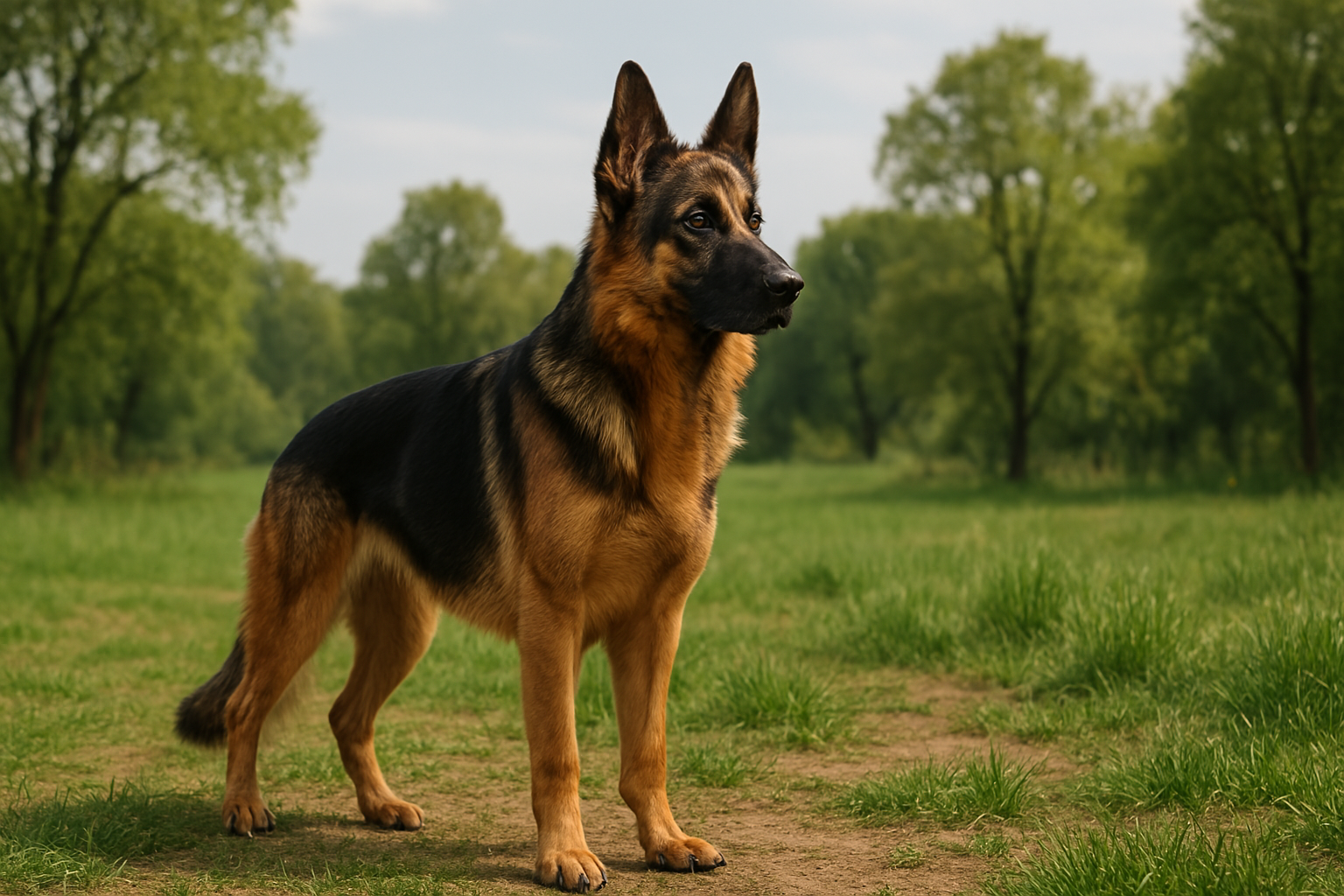The German Shepherd is one of the most iconic dog breeds in the world — known for its loyalty, intelligence, strength, and versatility. Whether they’re serving as police dogs, search and rescue heroes, guide dogs for the blind, or beloved family pets, German Shepherds shine in every role they play.
But before you decide to adopt one, it’s important to understand what it takes to properly care for and raise a German Shepherd. In this comprehensive guide, you’ll learn everything you need to know to determine whether this noble breed is right for your lifestyle.
The German Shepherd Temperament
German Shepherds are:
- Intelligent and highly trainable
- Loyal and protective of their family
- Energetic and hardworking
- Alert and confident
- Courageous and obedient
These traits make them exceptional dogs — but they also require dedicated, informed owners who can offer structure, training, and lots of activity.
Is a German Shepherd Right for You?
Before adopting a German Shepherd, ask yourself the following questions:
- Do I have time for daily training and exercise?
- Am I confident enough to lead a strong and assertive dog?
- Do I live in a space that allows for active dogs?
- Can I provide socialization opportunities regularly?
- Am I willing to commit 10+ years to the health and happiness of this breed?
If you answered “yes” to most of these, then a German Shepherd might be a fantastic match for you.
Daily Exercise and Mental Stimulation
German Shepherds are working dogs — they are happiest when they have a job to do. Without enough stimulation, they can become bored, anxious, and even destructive.
They need:
- At least 1.5 to 2 hours of physical activity per day
- Long walks or jogs
- Playtime in secure outdoor areas
- Games like fetch or tug-of-war
- Mental challenges like scent work or obedience training
- Agility courses or advanced training tasks
A tired German Shepherd is a well-behaved German Shepherd!
Training a German Shepherd
Training is essential for this breed and should start as early as possible. The good news? They are one of the most intelligent breeds and eager to learn.
Training tips:
- Use positive reinforcement (treats, toys, praise)
- Keep training sessions short, fun, and consistent
- Start with basic commands: sit, stay, come, down
- Progress to advanced tasks: heel, off-leash recall, protection cues (if desired)
- Enroll in structured obedience classes, especially for first-time owners
Avoid harsh punishment or yelling — it can damage trust and lead to behavioral issues.
Socialization: A Must for This Breed
Without proper socialization, German Shepherds can become overly suspicious or protective. To raise a balanced and confident dog:
- Introduce them to new people, environments, and animals from an early age
- Visit pet-friendly stores, parks, and events
- Invite friends over to interact with your dog in safe conditions
- Expose them to various sounds and surfaces (cars, stairs, elevators)
The more positive experiences your dog has, the better they’ll adapt to life in a human world.
Grooming Needs
German Shepherds have a double coat that sheds heavily — especially during spring and fall.
Grooming tips:
- Brush 2–3 times per week (daily during shedding seasons)
- Bathe only when dirty (every 6–8 weeks)
- Clean ears regularly to prevent infection
- Trim nails monthly
- Brush teeth 2–3 times per week
A good grooming routine helps maintain a healthy coat and prevents skin issues.
Health Considerations
German Shepherds are generally strong and healthy, but they are prone to a few genetic conditions:
- Hip and elbow dysplasia
- Degenerative Myelopathy (DM)
- Bloat (gastric torsion)
- Allergies and skin issues
- Exocrine pancreatic insufficiency (EPI)
Choose a reputable breeder who screens for health issues, or adopt through a rescue that provides health evaluations.
Regular vet visits and a quality diet go a long way in preventing major health problems.
Living Environment
Ideally, German Shepherds should live in a home with:
- Access to a yard or frequent trips to outdoor areas
- Enough space to move freely (not ideal for small apartments)
- A structured daily routine
- Opportunities for active bonding (training, running, playing)
They are adaptable, but thrive best in environments where they’re mentally and physically engaged.
Feeding Your German Shepherd
Nutritional tips:
- Feed high-quality kibble formulated for active large breeds
- Divide meals into two portions per day to prevent bloat
- Avoid free-feeding or overusing treats
- Monitor weight and body condition regularly
- Consult your vet about supplements for joint health
Puppies, adults, and seniors all have different needs — be sure to adjust feeding based on life stage.
Commitment and Companionship
German Shepherds are not “casual” dogs. They need structure, leadership, and deep companionship. They bond intensely with their humans and want to be part of every aspect of your life.
They are known for their loyalty and protection, but also for being gentle and loving when raised right.
If you’re willing to put in the effort, you’ll have a dog who is not only a best friend — but also a reliable partner for life.

